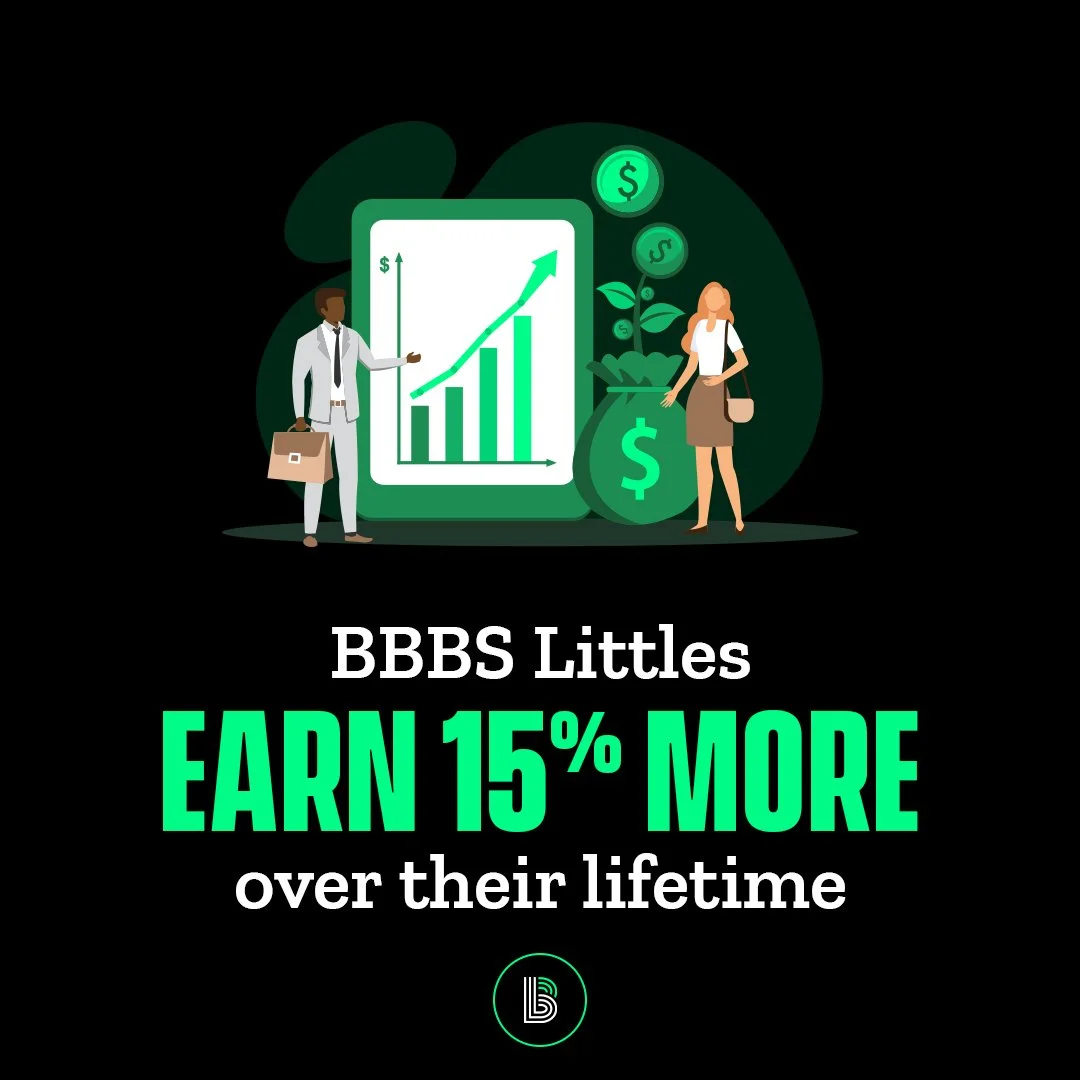
What makes a “Match”?
Mentors and mentees agree to meet a minimum of twice a month for two to four hours enjoying low to no-cost activities. Consistency is key to the success of the relationship between a child and their mentor. Children in our program look forward to seeing their Big regularly. Consistent time together allows for a meaningful and lasting relationship to develop.
Community-Based Mentoring
Community-Based mentoring is our flagship program. It’s the core of what we do, and where our mission ignites the most potential.
Through our community-based model, we connect each Little with a Big who spends time with them two to three times a month—often to see a movie, do homework, play sports or games, grab a bite together, or simply talk about life.
All volunteer mentors are extensively interviewed, screened, trained and introduced to the mentee and their family prior to initiating any mentoring relationship.
We support each Big with a dedicated Match Support Specialist, who is always available with customized resources and guidance to ensure the Big-Little relationship is mutually fulfilling.
we are defenders of potential.
Being a Big isn't about intense conversations or grand gestures. It's about being there consistently. It's about showing up—one conversation, one laugh, one game at a time.
Right now, nearly 200 Littles in the Capital Region are waiting for someone just like you. Someone who can be their guide, their friend, their champion—someone who sees their potential and is ready to ignite it.
Your presence can make a lifetime of difference. Join us at our next Big Meet-Up to learn how simple moments can become life-changing connections.
Potential can't wait—and neither should you.
the Economic impact
LITTLE MOMENTS.
LIFELONG IMPACT.
Big Brothers Big Sisters knows that children who avoid interactions with the juvenile justice system – and violence, drugs, and alcohol - are more likely to succeed.
That's why we work with families and advocates to support, encourage and champion the relationships between Bigs and Littles.
Bigs help teach their Littles right from wrong and help them make good decisions.
In a survey of alumni Littles from across the nation:
76% learned right from wrong from their Big.
86% said it has helped them make better choices as an adult.
90% said their relationship with their Big helped them make better choices throughout their childhood.

A Continuum of care
In recent years, we’ve enhanced our traditional one-to-one mentoring model to add people, experiences, and outcomes for every young person we connect with.
Our expanded model intentionally acknowledges not just the role of one mentor, but also of the Littles’ (young person’s) families, our staff, and their broader communities.
We continue to deliver quality mentoring programs—which will always be core to who we are and what we do—but also work to deliver wraparound programing to enhance or expand upon it.
Our Site-Based mentoring programs offer a more specialized approach. Often times, this approach affords more accessibility to a mentoring relationship for children who cannot participate in a community-based model.
Typically, matches meet once per week or every other week, on-site in a supervised setting. Some of our programs include a structured curriculum and others are unstructured but based on youth development goals
All matches are professionally supported by a program team member throughout the duration of the program.
SITE-BASED PROGRAMING
-
Within our College Mentoring and High School Bigs Programs, elementary school students build an ongoing relationship based on one-to-one interactions and occasional group activities. The younger students (mentees) gain confidence, while the older students (mentors) build leadership skills. Young mentors learn that they can make a difference in the life of a child and have a positive impact on their community.
-
Our “Future (Work) Force” Initiative matches middle school students with employees from a company within the community.
This program focuses on career exploration and goal setting in a professional workplace environment.
Helping children realize their full potential is a primary goal throughout all of our mentoring programs!
-
Description text goes here





